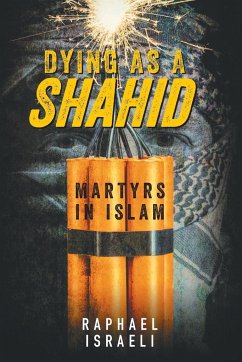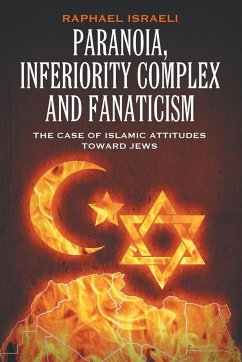Dying as a Shahid: Martyrs in Islam examines the motives, religious and psychological, which make the so-called "suicide bomber" tick. What is usually so called, must rather be termed "Islamikaze," a combination of Islam and kamikaze, due to the phenomenological resemblance between the Japanese kamikaze who fought in the Pacific during World War II, and the present-day Muslim terrorists. In addition to the religious, social, and psychological underpinnings of the phenomenon of Shahid (martyr), there is a rich array of historical precedents that have fixated this sort of terrorism with self-immolation, dubbed "self-sacrifice," as a prominent feature of Islamic life. (About the Author) Raphael Israeli has taught Islamic, Chinese, and Middle Eastern history at Hebrew University in Jerusalem. A graduate of Hebrew University in history and Arabic literature, he earned a Ph.D. in Chinese and Islamic history from the University of California, Berkeley. Now retired, he has been a Fellow of the Harry Truman Research Institute at Hebrew University and the Jerusalem Center since the 1970s, and is the author of over 50 research books, a dozen edited books, and 100 scholarly articles about Islam. Born in Fes, Morocco, at fourteen, "I left my family when I could no longer bear the oppression of Jews in an Islamic country and moved to fledgling Israel. To this day, I consider that the wisest and most game-changing decision I took in my life."
Hinweis: Dieser Artikel kann nur an eine deutsche Lieferadresse ausgeliefert werden.
Hinweis: Dieser Artikel kann nur an eine deutsche Lieferadresse ausgeliefert werden.








